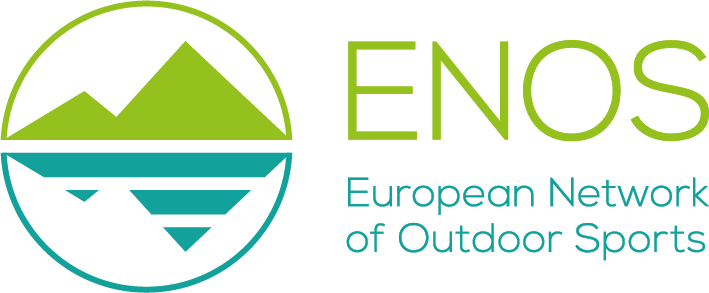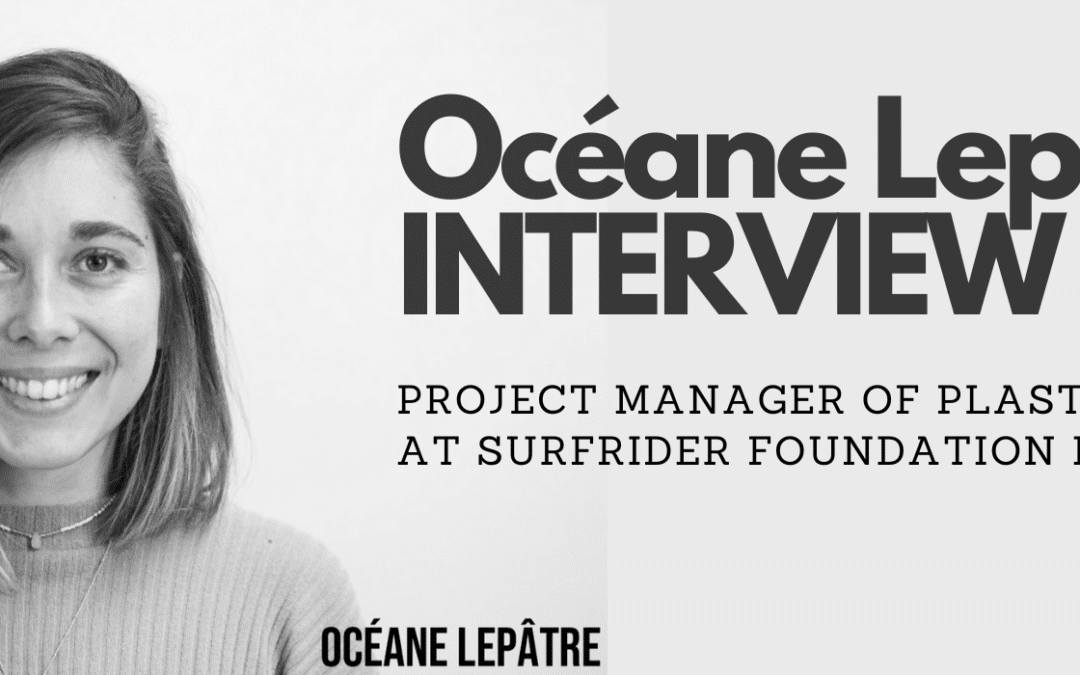First of all, as project manager of Plastic Origins, we would like to know why did you choose to get engage in the protection of the environment and more specifically with the Surfrider Foundation? What do you get out of working on this project?
I’ve been working for almost two years on the Plastic Origins project. I initially joined Surfrider as part of my final year internship. I am an ecologist by training, and I am particularly interested in the study of the impact of pollutants on ecosystems. Plastic Origins tackles the problem of waste in the river environment, and I found it particularly exciting to work on this little-known, dynamic, and little-protected aquatic ecosystem. I wanted to join the Surfrider cause and fight against waste at the source!
Working in an association is to be nourished by the passion of volunteers and a community very committed to make things happen and protect the environment. This dynamism brought me to Surfrider and what made me stay.
How did this project come about?
80% of the aquatic waste in the oceans is of continental origin. Faced with this observation, Surfrider decided in 2013 to launch a pilot study, called Riverine Input, to better understand where this waste comes from.
The objective is to include waste as a mandatory indicator of environmental quality and good ecological conditions of the rivers.
This study was carried out along pilot rivers in the Adour Garonne basin and on the Mediterranean coast. The idea was then to collect more data on the whole French and European territory. This is why the Plastic Origins project was born. Plastic Origins is a program that collects large data amounts on wastes washed up along the riverbanks by mobilizing volunteers and river professionals.
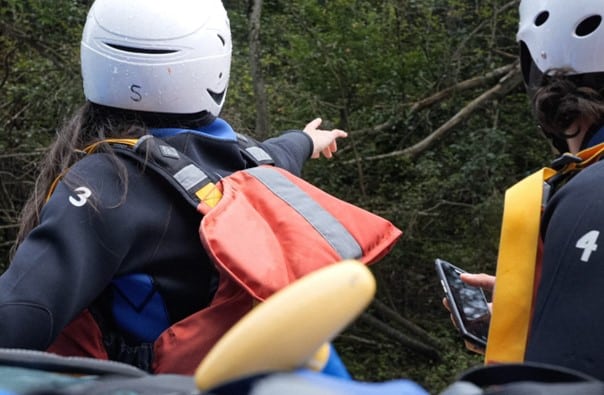
Plastic origins is a citizen science program that aims at mapping macroplastic pollution in European rivers, through an application, and acting at the local level to reduce pollution at the source. Can you give us some data that you have already collected?
In January 2023 we count 1,900 user accounts created on the Plastic Origins mobile application. These are about 160 rivers in Europe on which we have started to have data. Mainly in France (16,000 pieces of waste were reported in 2022 via the App), but also in our European neighbors[1] (5,000 pieces of waste reported in Europe, mainly in Spain, Germany, Italy, Switzerland, the Netherlands and Belgium).
The idea, thanks to the data, is to identify areas where waste is accumulating in order to take action in these territories. The first results allow us to identify the geographical areas where we have volunteers mobilized to collect data, and areas where we will be able to encourage them to act to reduce the contribution of this waste at the source.
Can you explain what’s going on after people report on the app litter they found? Does the user only warn of the presence of waste or does he also pick it up?
The volunteer who will collect data via the Plastic Origins application can also collect waste as he passes along the river. However, care must be taken: the river environment is sometimes hostile and the volunteer should not put himself in danger by trying to collect all the waste on his way.
Once the data is collected, it is entered into our database, which allows us to plot the geo-located waste points on a map. The map is currently being developed. The idea is that eventually, all the results will be open source and accessible to all.
[1] The headquarter of Surfrider Foundation Europe is located in France
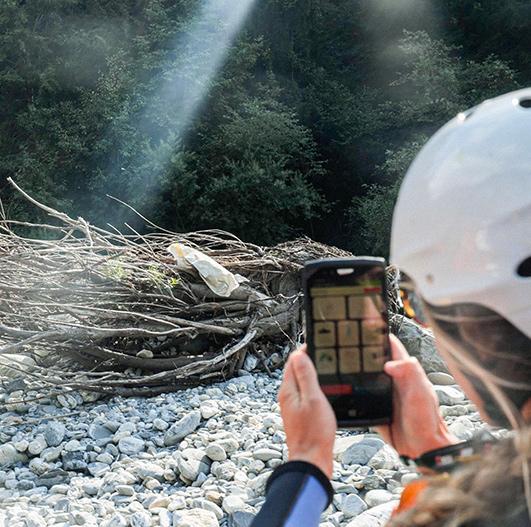
Are local authorities notified? How do you involve them in the project?
My colleague Jennifer, based in Marseille, is in charge of the next phases of the project which are the “Alert” and “Act” phases. Once areas with a high concentration of waste have been identified, she will alert or accompany volunteers to alert the territories concerned in order to accompany them in the implementation of solutions to reduce waste at source.
The idea is to work together and collaborate to limit the introduction of waste into the environment. For this, sheets ready for use are proposed, with concrete actions to fight against the problems generally encountered in the environment (fight against disposable wipes, secure waste containers, develop natural sites regularly subjected to illegal dumping, raise awareness against waste thrown in toilets …). These phases of the project are being developed in France at first.
What awareness-raising actions have been put in place with this project?
We have the opportunity to organize or have our volunteers organize kayaking expeditions in the field in order to collect data. Bringing people into the river environment allows them to see the scourge of plastic pollution in rivers.
This project is also part of Surfrider’s large monitoring program on aquatic waste, in which many awareness-raising actions are conducted. Educational tools are also created on the theme.
According to you, what is the added value of this project? Can you tell us more about the method used “participatory science” and why did you choose this method?
This project is innovative because it combines:
– the world of sports and outdoor activities. Indeed, the data collection is mainly done on board kayaks. We are therefore mobilizing the entire community of river users: kayak, stand up paddle, canoe and rowing clubs, as well as leisure centers.
– the digital world: the project is developed around innovative digital tools (R&D on an artificial intelligence that automatically detects waste on videos)
– environmental protection.
Participatory science makes it possible to collect a large amount of data on a large territory. In the framework of the Plastic Origins project, the target is not the general public, but more the river users, the professionals of the environment (river unions, communities, local associations…). But it is also for the curious!
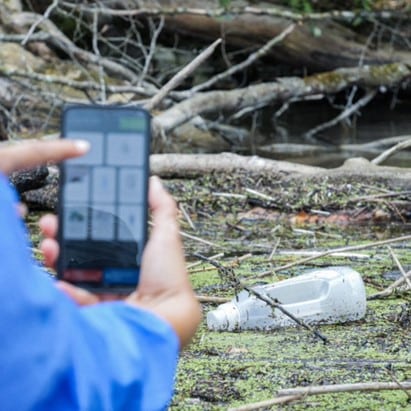
What are the next steps of the project?
The project is still under development, and we are in particular developing a cartography accessible to all that will make it possible to display the results of data collection campaigns.
Then, the alert and solution implementation processes will be launched in the first territories identified as heavily polluted.
Can you give us once sentence to encourage people to get involved in the project?
Download the application -the app is free-, take a short online training course, and get out in the field to help us collect data! Visit the website: https://www.plasticorigins.eu/join-us
***
About the Surfrider Foundation Europe:
For more than 30 years, Surfrider Foundation Europe has been protecting, safeguarding and enhancing the oceans and the entire population that benefits from them. It acts on a daily basis to fight against damage to the coastal environment and its users.
Surfrider Europe works with all social actors (individual citizens and the public and private sectors) on 3 main issues: education and awareness; political advocacy and scientific and legal expertise.
For more information, visit the website: https://surfrider.eu/en/
Interwiew by Laura Suau, ENOS communication team – Project leader and International cooperations at the French equestrian federation
